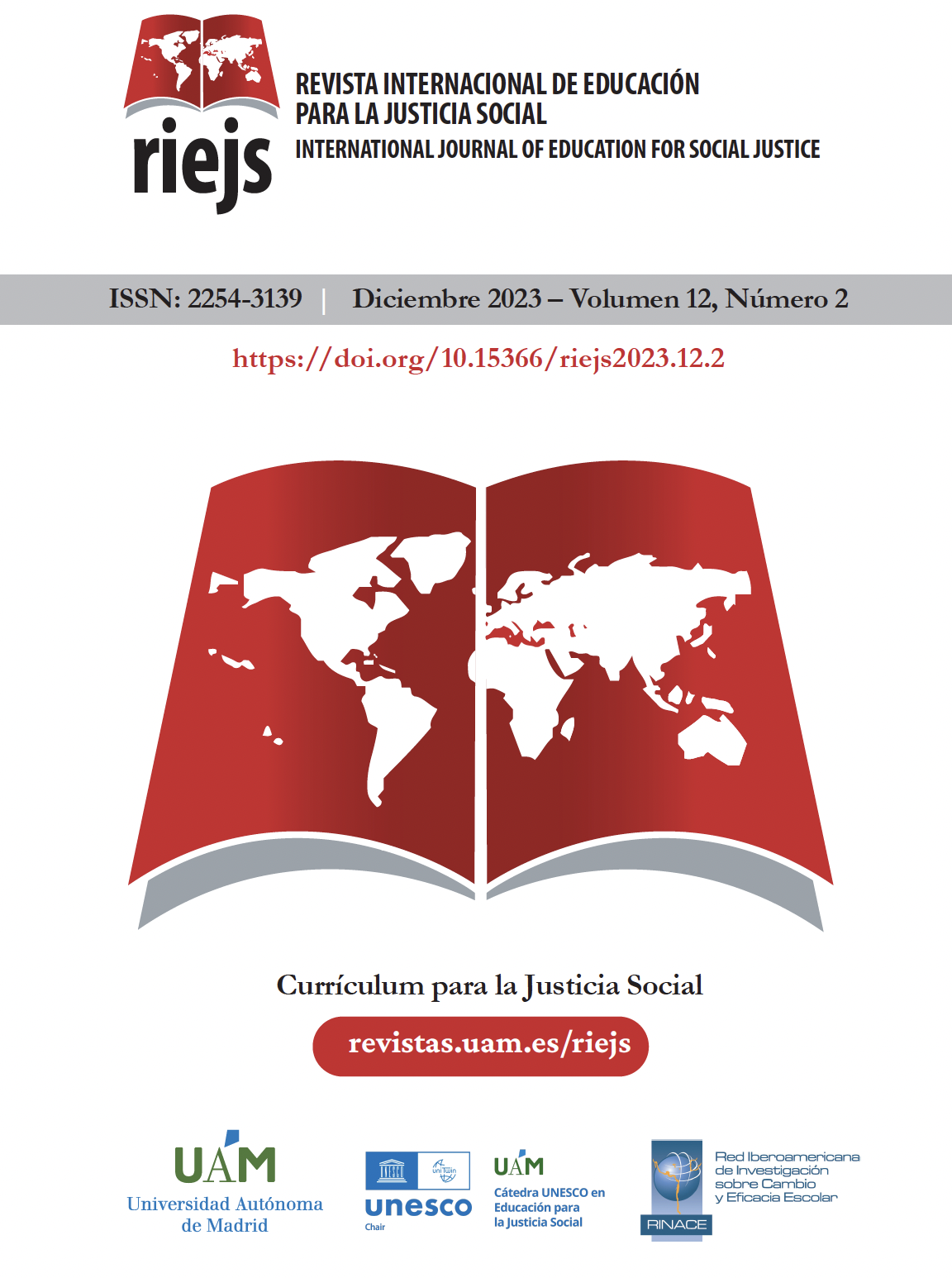Palabras clave:
Curriculum, Justicia social
Esta obra está bajo una licencia internacional Creative Commons Atribución-NoComercial-SinDerivadas 4.0.
Resumen
En todo el mundo, los sistemas educativos han sido prisioneros de agendas globales hegemónicas (Ball, 2001; Dale, 2004) dirigidas por organismos y agencias internacionales, como la OCDE, el Fondo Monetario Internacional y el Banco Mundial, que determinan las políticas locales. Estas agendas están asociadas al Movimiento Global de Reforma Educativa - GERM (Fuller y Stevenson, 2019; Sahlberg, 2016), que difunde currículos básicos comunes prescritos y una cultura de evaluación estandarizada de "pruebas" (Broadfoot y Black, 2004; Marinho et al., 2019; Stobart, 2008) que han contribuido en gran medida a acentuar las desigualdades e injusticias frente a la heterogeneidad y diversidad de los y las estudiantes. Sin embargo, en contra de este movimiento liberal, se ha reafirmado un movimiento de educación crítica, basada en principios de democracia, justicia curricular, equidad y reconocimiento (Apple y Beane, 2000; Dubet, 2008; Fraser, 2008; Sampaio y Leite, 2018; Torres, 2013).
Descargas
Citas
Apple, M. y Beane, J. (2000). Escolas Democráticas. Porto Editora.
Ball, S. J. (2001). Diretrizes políticas globais e relações políticas locais em educação. Currículo sem Fronteiras, 1(2), 99-116.
Broadfoot, P. y Black, P. (2004). Redefining assessment? The first ten years of assessment in education. Assessment in Education, 11(1), 7-27. https://doi.org/10.1080/0969594042000208976
Connell, R. W. (1999). Escuelas y Justicia Social. Ediciones Morata.
Dale, R. (2004). Globalização e educação: demonstrando a existência de uma “cultura educacional mundial comum” ou localizando uma “agenda globalmente estruturada para a educação”? Educaco e Sociedade, 25(87), 423-460. https://doi.org/10.1590/S0101-73302004000200007
Dubet, F. (2008). O que é uma escola justa? A escola das oportunidades. Cortez.
Fernandes, P., Leite, C., Mouraz, A. y Figueiredo, C. (2013). Curricular contextualization: Tracking the meanings of a concept. The Asia-Pacific Education Researcher, 22(4), 417-425. https://doi.org/10.1007/s40299-012-0041-1
Fraser, N. (2008). Escalas de justicia. Herder Editorial.
Fuller, K. y Stevenson, H. (2019). Global education reform: Understanding the movement. Educational Review, 71(1), 1-4. https://doi.org/10.1080/00131911.2019.1532718
Grange, L. L., Du Preez, P., Ramrathan, L. y Blignaut, S. (2020). Decolonising the university curriculum or decolonial-washing? A multiple case study. Journal of Education, 80, 25-48. https://doi.org/10.17159/2520-9868/i80a02
Marinho, P., Leite, C. y Fernandes, P. (2019). “GERM infecioso” nas culturas escolares-possibilidades e limites da política de autonomia e flexibilização curricular em Portugal. Currículo sem Fronteiras, 19(3), 923-943. https://doi.org/10.35786/1645-1384.v19.n3.07
Miller, P. W., Roofe, C. y García-Carmona, M. (2019). School leadership, curriculum diversity, social justice and critical perspectives in education. En P. S. Angelle y D. Torrance (Eds.), Cultures of social justice leadership (pp. 93-119). Palgrave Macmillan, Cham. https://doi.org/10.1007/978-3-030-10874-8_5
Moreno-Medina, I. (2023). Actitudes y comportamientos de Justicia social del profesorado en contextos desafiantes: Un estudio de caso. Revista Electrónica de Investigación Educativa, 6, 1-19.
Murillo, F. J. e Hidalgo, N. (2015). Enfoques fundamentantes de la evaluación de estudiantes para la justicia social. Revista Iberoamericana de Evaluación Educativa, 8(1), 43-61.
Murillo, F. J., Román, M. y Hernández, R. (2011). Evaluación educativa para la justicia social. Revista Iberoamericana de Evaluación Educativa, 4(1), 7-23.
Peña-Sandoval, C. y Jiménez, T. L. (2020). Curriculum ideologies and conceptions of diversity and social justice. Cadernos de Pesquisa, 50, 738-775. https://doi.org/10.1590/198053147086
Reyes, G., Banda, R. y Schultz, B. D. (2021). Critical perspectives on curriculum and pedagogy. Oxford University Press. https://doi.org/10.1093/acrefore/9780190264093.013.1471
Sahlberg, P. (2016). The global educational reform movement and its impact on schooling. En K. Mundy, A. Green, B. Lingard y A. Verger (Eds.), The Handbook of Global Education Policy, 128-144. https://doi.org/10.1002/9781118468005.ch7
Sampaio, M. y Leite, C. (2018). Mapping social justice perspectives and their relationship with curricular and schools' evaluation practices: Looking at scientific publications. Education as Change, 22(1), 1-21. https://doi.org/10.25159/1947-9417/2146
Stobart, G. (2008). Testing times: the uses and abuses of assessment. Oxon. https://doi.org/10.4324/9780203930502
Torres, J. (2013). Currículo escolar e justiça social: O cavalo de Troia da educação. Penso.
United Nations. (2015). Transforming our world: The 2030 agenda for sustainable development. UN Publishing.
